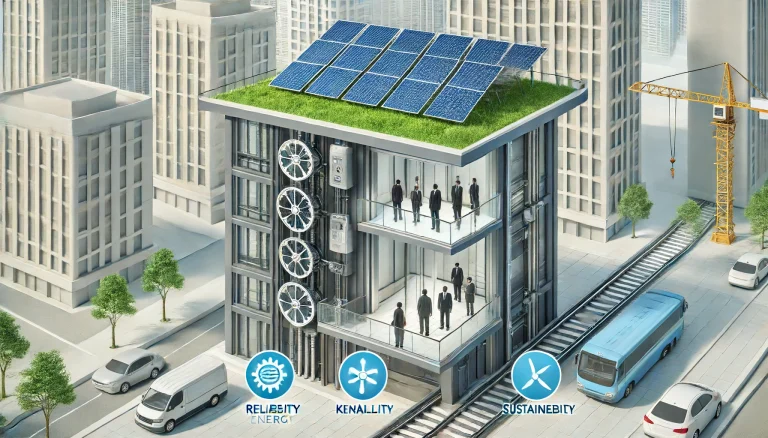
As urban populations grow and cities become more connected, transportation networks must evolve to meet increasing demands. However, outdated parking policies and inefficient management systems create congestion, reduce mobility, and contribute to unnecessary carbon emissions. Traditional parking enforcement methods rely on manual monitoring, leading to inefficiencies and revenue losses for city governments. Drivers waste time searching for parking, increasing traffic congestion and frustration.
The rise of smart city technologies offers a solution, but current parking infrastructure is not designed to support AI-driven automation, IoT-enabled monitoring, or real-time data analytics. Cities need a modernized system that optimizes parking availability, streamlines enforcement, and integrates seamlessly with urban mobility solutions. An AI-powered, IoT-connected parking management system would enable real-time tracking of spaces, dynamic pricing, automated ticketing, and predictive analytics to anticipate demand.
By implementing such a system, cities can reduce congestion, lower emissions, enhance revenue collection, and improve the overall urban experience for residents and visitors. However, transitioning from legacy parking infrastructure to a fully automated, AI-enhanced system requires overcoming technical, regulatory, and financial challenges.
Target Users & Stakeholders
- Drivers & Commuters – Individuals looking for parking in urban areas.
- City Governments & Municipalities – Responsible for urban planning, traffic management, and revenue generation.
- Law Enforcement & Traffic Police – Responsible for enforcing parking regulations.
- Smart City Planners & Urban Developers – Need integrated mobility solutions for sustainable cities.
- Businesses & Retail Owners – Rely on accessible parking for customer footfall.
- Public Transportation Authorities – Need seamless integration with parking for park-and-ride systems.
- Tech Providers & Startups – Companies offering AI, IoT, and automation solutions for parking.
- Environmental Agencies – Concerned with the carbon footprint caused by congestion and idling vehicles.
- Real Estate Developers – Impacted by parking regulations in urban developments.
- Logistics & Delivery Services – Struggle with last-mile parking availability for deliveries.
Pain Points
- Parking Scarcity & Congestion – Drivers waste time searching for parking, increasing traffic congestion.
- Inefficient Parking Enforcement – Manual enforcement leads to illegal parking, revenue losses, and inefficiencies.
- Lack of Real-Time Availability Data – Drivers don’t have visibility on vacant spots, leading to frustration.
- Outdated Payment Systems – Many cities still rely on coin meters or outdated payment kiosks.
- Revenue Leakage for Cities – Manual enforcement results in uncollected fines and underutilized parking assets.
- No Dynamic Pricing Mechanisms – Static pricing fails to optimize demand and supply during peak hours.
- Limited Integration with Mobility Solutions – Parking data isn’t connected with public transport, ride-sharing, or navigation apps.
- Environmental Impact – Idling cars searching for spots increase carbon emissions and air pollution.
- Lack of Data-Driven Urban Planning – Cities lack parking analytics to make informed decisions about zoning and policies.
- Accessibility Challenges – Disabled drivers often struggle to find designated parking spaces due to poor management.
Key Competitors
- ParkMobile – A leading mobile parking app that allows users to find and pay for parking in urban areas. It partners with cities and private garages but lacks deep AI-driven enforcement.
- SpotHero – A digital parking marketplace that connects drivers with available parking spots. It helps optimize demand but does not offer real-time sensor-based tracking.
- Passport – Provides a digital parking payment and enforcement solution for cities. It focuses on mobile payments and citation management but lacks AI-powered predictive analytics.
- INRIX – Uses data analytics to provide real-time parking availability and traffic insights. However, its approach is more data-driven rather than full AI automation.
- ParkWhiz – A pre-booking platform for parking spots. While it enhances parking reservations, it does not focus on automated enforcement and IoT-driven management.
Startups Innovating in Smart Parking
- Metropolis – Uses AI-powered license plate recognition for seamless parking payments.
- Urbint – Focuses on predictive analytics to improve urban infrastructure, including parking.
- FlashParking – Develops cloud-based parking solutions integrated with EV charging and mobility services.
- Smarking – Provides parking analytics to optimize space utilization and revenue management.
- Parkopedia – Uses crowdsourced and real-time data to provide smart parking insights.
- Get My Parking – Offers IoT-enabled parking solutions for digital parking management.
- Smart Parking Ltd – Uses sensor-based systems for real-time parking availability.
- JustPark – A community-driven parking rental platform.
- ValetEZ – Provides smart parking solutions for urban centers in emerging markets.
- Wayleadr – Focuses on workplace and office parking automation.
Industry Innovations
The parking industry is evolving with cutting-edge technology:
- AI-Powered License Plate Recognition (LPR) – Automates entry, exit, and payment based on vehicle identification.
- IoT-Enabled Smart Parking Sensors – Embedded in parking spots to detect occupancy in real-time.
- Dynamic Pricing Models – AI-driven pricing adjusts based on demand and congestion.
- Automated Parking Garages – Robotic parking systems optimize space usage.
- Seamless Mobile Payment Integration – NFC, QR code, and app-based transactions.
- AI-Driven Predictive Analytics – Helps anticipate parking demand patterns.
- EV Charging Integration – Smart parking solutions designed for electric vehicles.
- Augmented Reality Navigation – AR-based directions to guide drivers to open parking spots.
- Blockchain-Based Parking Payments – Ensuring secure, transparent transactions.
- 5G-Enabled Parking Infrastructure – Enhances connectivity for real-time data exchange.
Recent Investments & Market Trends
- Metropolis raised $1 billion in 2023 to expand its AI-driven parking solutions.
- FlashParking secured $60 million in funding to integrate EV charging with smart parking.
- Smarking received $15 million in Series B funding for advanced parking analytics.
- ParkMobile was acquired by EasyPark Group in a $350 million deal to scale operations.
Market Gaps & Opportunities
Despite these advancements, there are still gaps in the industry that our solution can address:
- Lack of Full Automation – Most solutions focus on payments or reservations, but AI-driven enforcement is still underdeveloped.
- Limited Integration with Smart Cities – Many parking systems don’t seamlessly connect with public transport, ride-sharing, or urban mobility platforms.
- Insufficient Predictive Analytics – While some companies offer real-time parking updates, predictive insights for traffic optimization remain untapped.
- Regulatory & Policy Compliance Challenges – City governments struggle to enforce evolving parking regulations efficiently.
- Scalability for Emerging Markets – Many solutions are focused on developed markets, leaving developing cities underserved.
Product Vision
The future of urban mobility depends on seamless, AI-powered parking management that integrates with smart city infrastructure. Our product will be a comprehensive AI-driven smart parking system that combines IoT sensors, real-time data analytics, and automated enforcement to create a frictionless parking experience.
This solution will:
- Eliminate congestion caused by drivers searching for parking.
- Automate parking enforcement through AI-powered cameras and license plate recognition (LPR).
- Provide real-time availability updates using IoT-enabled parking sensors.
- Enable dynamic pricing based on demand and congestion.
- Integrate seamlessly with smart city platforms for better traffic and mobility management.
- Enhance revenue collection for municipalities through automated digital payments and AI-driven enforcement.
- Reduce environmental impact by lowering carbon emissions caused by idle vehicles.
By implementing machine learning algorithms, the system will predict parking demand, helping cities optimize parking space allocation and reduce traffic congestion. The product will be designed for scalability, making it adaptable to cities of all sizes.
Business Model:
We will offer SaaS-based solutions for municipalities, real estate developers, and businesses, along with transaction-based revenue from digital parking payments.
Use Cases
- Smart Parking Guidance – Drivers receive real-time parking availability through a mobile app or vehicle dashboard.
- AI-Powered Automated Enforcement – LPR cameras automatically detect violations and issue fines.
- Dynamic Pricing & Demand-Based Rates – Adjusts parking fees in real-time to optimize space utilization.
- Seamless Digital Payments – Allows contactless transactions via app, QR codes, and NFC.
- Predictive Parking Analytics – AI forecasts demand patterns, helping cities optimize parking policies.
- Park-and-Ride Integration – Enhances public transport accessibility with connected parking systems.
- EV Charging & Smart Parking – Integrates electric vehicle charging stations with smart parking.
- Fleet & Logistics Parking Management – Optimized parking solutions for commercial fleets and delivery services.
- Data-Driven Urban Planning – Provides insights to city planners for better zoning and infrastructure development.
- Accessibility & Special Parking Needs – Ensures dedicated spots for disabled drivers and high-priority vehicles.
Summary
Urban mobility is at a crossroads, with outdated parking policies failing to keep pace with rapid urbanization. Drivers waste significant time searching for parking, leading to increased congestion, frustration, and carbon emissions. Municipalities struggle with revenue leakage due to inefficient enforcement, while businesses lose customers due to inaccessible parking.
Current solutions—such as digital payment apps and reservation platforms—only address part of the problem. A true smart city approach requires a comprehensive AI-driven parking management system that integrates IoT sensors, real-time data analytics, and automated enforcement. Our proposed solution will:
- Provide real-time parking availability updates using IoT sensors.
- Use AI-powered license plate recognition (LPR) for automated enforcement.
- Implement dynamic pricing models to optimize space utilization.
- Seamlessly integrate with public transport, EV charging, and smart city platforms.
The competitive landscape shows that while companies like ParkMobile, SpotHero, and FlashParking are innovating, gaps remain in full automation, predictive analytics, and policy integration. By leveraging AI, our system will predict parking demand, optimize traffic flow, and improve urban sustainability.
With a SaaS-based revenue model and a target launch in 12-15 months, this solution aims to revolutionize city parking, enhancing efficiency, revenue collection, and the overall urban experience.

